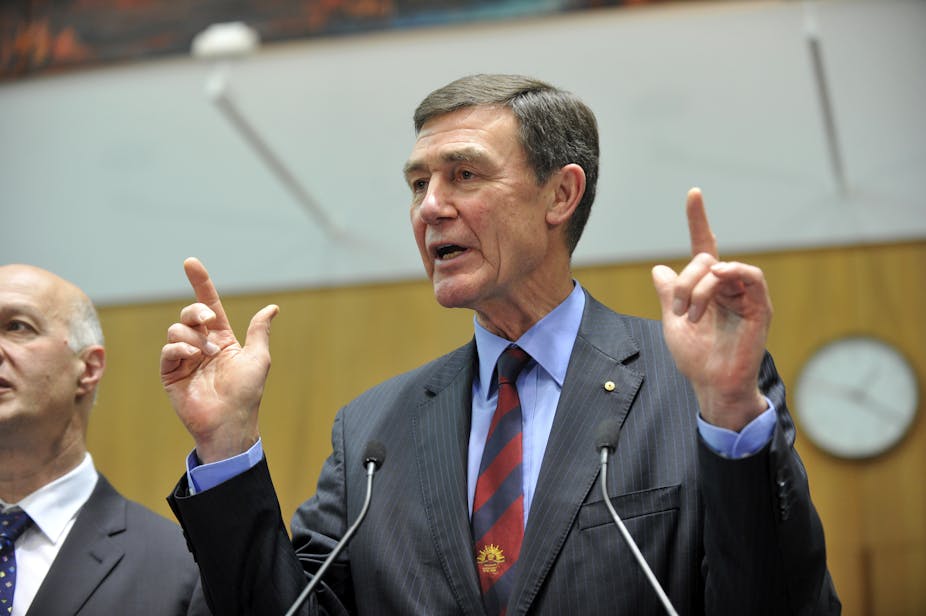It is now well understood that the Gillard government needed to act decisively to resolve the politics of the asylum seeker crisis.
Regardless of which side of the political spectrum one fell, the deaths at sea and the continual arrival of boats of asylum seekers necessitated action. Whether one was concerned about the humanitarian cost, or the domestic cost of “illegal arrivals”, the political reality was that the Coalition was getting too much traction on this issue.
But let’s not be fooled into thinking that the intent was to deliver good policy or indeed a genuine concern for the plight of the refugees. Everything from the framing of an “expert panel” through to the rush to circumvent the laws of the land and our obligations to international law, suggest that politics was the end game.
Let’s start with the so called expert panel. The framing of the discussion in a way that lends authority to a government appointed panel, albeit one that is apolitical in its composition, does little but stifle discussion and debate.
The capabilities of the panellists notwithstanding, all three eminent Australians in their own realms. It beggars belief that this group is what constitutes “expert” opinion in the context of the refugee problem. What the government needed was a group that would expeditiously posit a political solution to a humanitarian problem and give it the much sought after “clear air” to then conduct domestic political discourse free of the damage being inflicted by this issue.
The Coalition obliged by largely accepting the findings of the Houston report. Putting aside the unsavoury aspects of using the plight of refugees to realise domestic political objectives, the specific recommendations of the Houston report, the self proclaimed “hard-headed but soft hearted” approach is fundamentally flawed in its attempt to harness the power of incentives and disincentives to elicit changes in behaviour.
The panel has explicitly adopted the language and logic of game theoretic reasoning, recognising that individual behaviours are a function of the underlying incentives and objectives that they face. Unfortunately, the expert panel has failed to adequately understand the true calculus of incentives and disincentives it wished to harness to elicit changed behaviours.

First and foremost is a failure to understand the cost benefit appraisal that has led to the desperation (despite the very real risk of death at sea) that involves a willingness to embark upon a sea voyage to Australia. The erroneous belief that by adopting a “no advantage” principle, coupled with disincentives such as prohibiting family reunions for irregular maritime arrivals, would change the decision making at the time of embarking on such journeys fails to fully understand the constraints and objectives the refugees face. These are desperate people fleeing desperate circumstances that are unable or unwilling to languish in refugee camps for undetermined lengths of time.
It is far from obvious that a change in our domestic policy towards asylum seekers will filter through to information that the refugees will be privy to when making their decision on how to escape the desperate circumstances they face. And even if they are aware of the stated policies, it is still by no means clear, that the calculus that these desperate people face will be modified such that they now decide that a cost benefit appraisal of the risk of death at sea for the possibility of better life in Australia is tipped against embarking on such a risky journey.
Time will tell whether the expert panel has in fact delivered a soft-headed and hard hearted solution to the government’s political problem. If the boats continue to come, which they most likely will, because the experts have not adequately considered all the objectives, incentives and constraints that the refugees truly face, then all that we would have achieved is a political solution.
And sadly, I suspect this was all that the Gillard government truly sought. Given that both sides of parliament will now “own” the outcome of the asylum seeker policy, even if the boats continue to come and there are further deaths at sea, it won’t provide the political capital it did to the opposition in the past.
As far as game theoretic reasoning being applied to politics goes, the government has played this perfectly. Sadly, they’ve chosen to play political games at the expense of some of the most vulnerable and traumatised people and couched their actions in the guise of “accepting” the advice of an “expert” panel.
Politics is often dirty, but we’ve fallen to a new low when we shroud political self-interest in the veil of humanitarian concern and exploit the plight of the most vulnerable for domestic gain.

